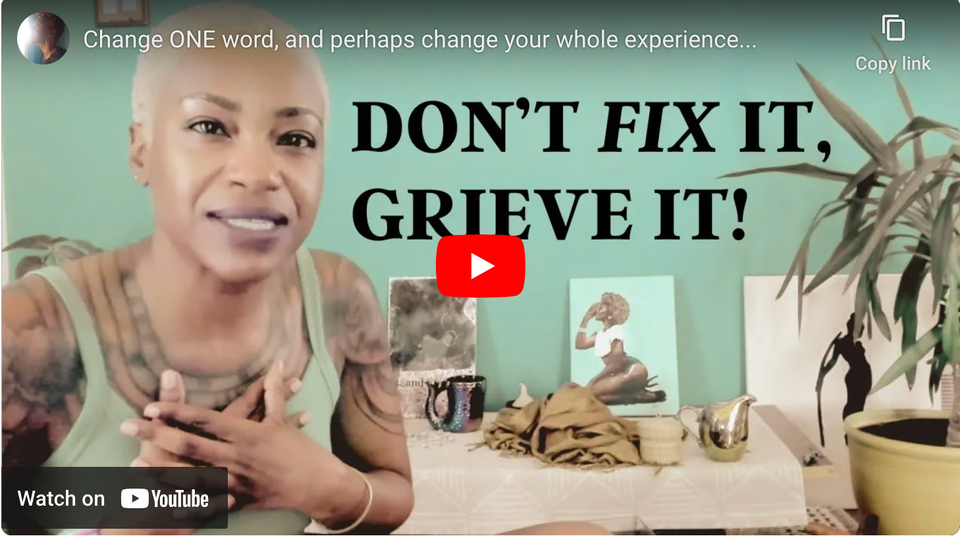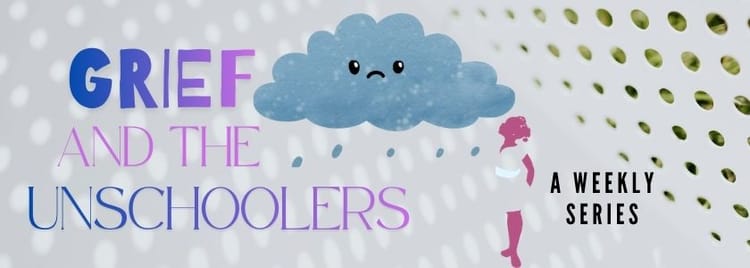Maybe grieve it before you "fix" it.

Prefer the video version?
What if every time you thought, 'I need to do something,' you replaced the word 'do' with 'grieve'? What if grieving is the thing to do? What if grieving is a valid, even necessary, way of moving through your experiences with your emotions? Especially emotions that feel like stuckness, being trapped, or are rooted in trauma? When you visit a certain family member, step into a space at your job, or join a group, and afterward, you feel out of sorts—you feel detached from your groundedness and wholeness—what if instead of thinking 'I need to do something,' you said, 'I need to grieve something'?
Challenge yourself to replace 'do' with 'grieve' and observe what happens. It’s a significant shift in perspective, particularly in societies with poor grief literacy, like the U.S. and many other Western cultures. Our relationship to grief, loss, and death in all forms—bodily death, end of cycles, unmet expectations, and broken relationships—is often focused on prevention, avoidance, suppression, and fixing. Due to this mindset, we often don't immediately recognize the validity and importance of accepting and feeling our grief. Whether that grief manifests as righteous anger, tears, pausing, or moving into or out of certain spaces, acknowledging our grief can be a key to understanding how to navigate it.
My invitation, my challenge to you, is to reframe your thoughts over the next seven days. Each time you think, 'I need to do something about this,' instead say, 'I need to grieve this first.' It's as simple as that. What might it look like to grieve instead of fix? To grieve instead of trying to change?
Of course, this doesn’t apply to everything. Some situations genuinely require action. However, even in those cases, if we first acknowledge our grief, it can inform how we affect change. It can help us understand the grief we are experiencing in relation to the situation. For example, childhood experiences that we have not grieved might impact our relationships with our parents, relatives, or other significant people in our lives. We keep trying to 'do' something to change it. But if we first grieve what we lacked or needed, that might clarify what actions are necessary.
So, what if, instead of thinking 'I need to do something,' you thought 'I need to grieve something'? How might that change your everyday life experience?






Member discussion